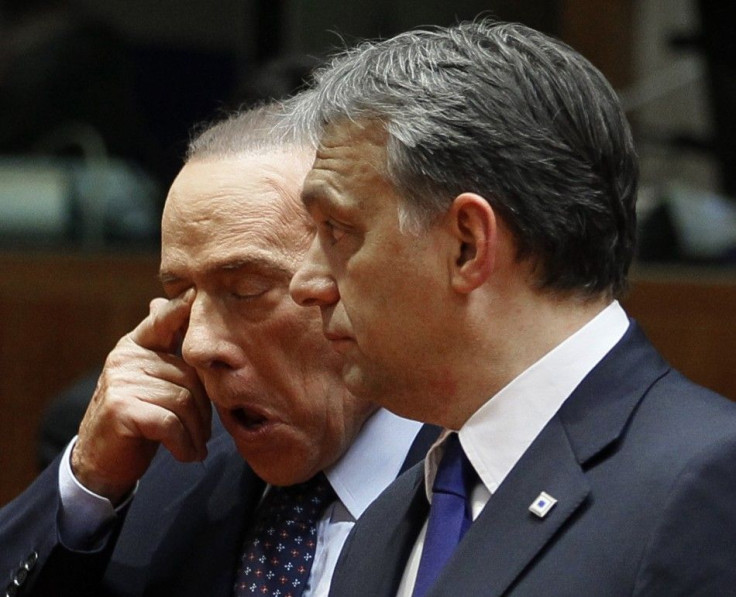Italians React With Scorn, Derision to Berlusconi’s Reform Plans

The European Union (EU) will aggressively monitor the reform measures that Italian Prime Minister Silvio Berlusconi has pledged to make in order to reduce the country’s enormous debt, said the EU’s Economic and Monetary Affairs Commissioner Olli Rehn said.
“Yesterday, Italy presented a strategy for rapid fiscal consolidation and growth-enhancing structural reforms, with clear measures and an ambitious timetable,” Rehn said during a speech in Berlin. “Delivery on these commitments will be monitored closely by the commission and the Council.”
Among other measures, Berlusconi, who presented his proposals during the Eurozone emergency summit meeting in Brussels, vowed to raise the retirement age from 65 to 67 starting in the year 2026; plans to raise 5 billion euros ($6.9 billion) through the privatization of state assets over the next three years; impose rules to make it easier for companies to fire employees; and balance the budget by 2013.
However, these ambitions may be extremely difficult to achieve.
Italy, which suffers from tepid economic growth -- the International Monetary Fund recently forecast that Italy's GDP would climb by only 0.3 percent next year -- now has debt totaling 1.9 trillion euros ($2.7 trillion) -- or 120 percent of GDP, the second highest level in the Eurozone behind only Greece.
Moreover, Berlusconi’s promises have largely been met with derision, skepticism and scorn in Italy.
It's hard to believe that yesterday's intentions can really be transformed into the biggest plan of market reforms Italy gas ever put on paper, Antonio Polito wrote in the Corriere della Sera newspaper.
The leftist La Repubblica newspaper derided Berlusconi’s plans as a book of dreams.
One Rome resident told Reuters: Making it easier to fire employees doesn't help people at all. They should target large assets, those who have more need to pay more in this moment of crisis.”
Not surprisingly, Italian unions have already threatened to fight the reforms the government will seek to impose, particularly the ones that would compromise job protection rules.
Susanna Camusso, secretary of the country’s largest trade union Italian General Confederation of Labour (CGIL) told La Repubblica: We're ready to propose unified action.”
CGIL’s federal secretary, Fulvio Fammoni, told Italian media: “The union will react with the necessary strength If the goal is to hire and not fire the government should immediately send a registered letter to Brussels saying it is wrong.”
Smaller unions like CISL and UIL have also vowed to call for strikes.
Touching redundancies seems like a provocation at a time when the country needs cohesion, said CISL leader Raffaele Bonanni.
As for Berlusconi, who is facing a litany of other problems, including an ongoing sex scandal and strife from one of his key coalition partners, the Northern League, he has warned the nation that it must abide by the new reforms.
“If we [Italians] don’t respect our commitments, we won’t be credible anymore,” Berlusconi told reporters in Brussels.
He also said: We hope the [Italian] opposition wants to get out of this situation of always saying no and always being against things, and that it will back approval of these measures requested by Europe.
© Copyright IBTimes 2024. All rights reserved.





















